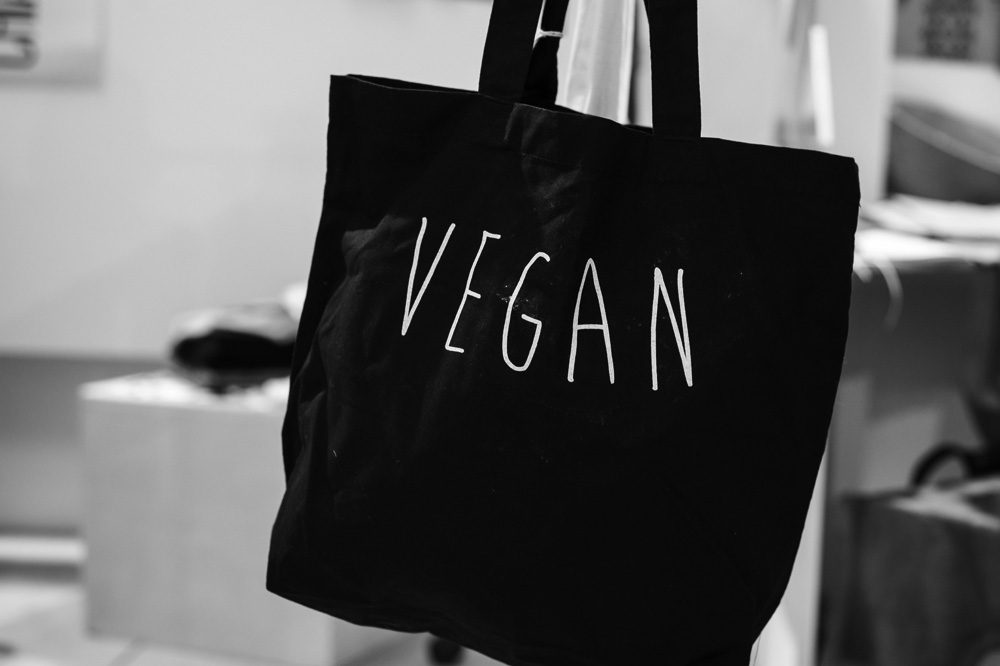Veganism has become a market trend in recent years and the fashion and beauty industry has moved quickly to join the movement. According to data from analytics firm Edited, the US, UK, Germany and France are the countries investing the most in the vegan market. When it comes to launching vegan products on the market, no sector is moving faster than beauty: of all the new vegan items launched in the UK last year, 82 percent of them belonged to the beauty category. The luxury sector has a long way to go, though most well-known brands are starting to embrace the veganism mantra banning fur and exotic skin.
Vegans are shopping for cruelty-free cosmetics and spearheading the demand for alternatives to leathers, wool, silk and skins. Now an essential and growing market for fashion and beauty retailers to cater to.

Vegan In Fashion: A Market Trend On The Rise
Since 2018, continued growth has been noted in the US and UK. By the end of January, there was a 43% YoY increase in products described as ‘vegan’ stocked in the UK. In the US, this grew by 64%. According to last year’s Mintel research, the UK overtook Germany as the world leader for vegan food launches. A major market for cruelty-free fashion in its own right, the number of vegan products retailing online in Germany has grown 95% since 2018.
France had a 12 percent growth, but Paris’ commitment to become the capital of sustainable fashion by 2024 may increase the offering of vegan products. Another country to keep an eye on is Denmark, which has seen a 320 percent increase in products described as vegan, according to Edited.
The Beauty Industry Leads The Way
Under the ongoing consumer demand for cruelty-free products in the cosmetics industry, beauty vegan products surmount all other categories. Of vegan products available online at the end of January, the beauty sector makes up 66% in the US and 69% in the UK.
There is considerable growth in vegan-friendly footwear and accessories across both of these regions, with retailers investing in cruelty-free alternatives to leather and suede. The number of shoes available described as ‘vegan’ increased by 27% YoY in the US and 36% in the UK.
“Throughout January, mass market retailers such as New Look and Lulu’s incorporated vegan-friendly materials in their new season arrivals. 2019 saw Veja release its first vegan sneaker, a style that will be a focus of further sustainable innovation throughout the year. Contributing to Veganuary, the brand was spotlighted in communications across both luxury and mass retailers stocking the label,” Edited stated in their report.
Luxury Brands Lag Behind The Vegan Trend
Designers such as Gucci, Chanel, Burberry, Versace and Victoria Beckham have vowed to keep their catwalks fur-free. This cohort sets an example for the rest of the luxury fashion industry to follow. In the US, there is already a 36% YoY decline of women’s fur arrivals over the past three months.
Leather and skins are still prominent in the luxury market, synonymous with designers such as Hermes and Louis Vuitton who have built their legacy on leather goods.
Furthermore, Edited analyzed womenswear luxury products currently in stock in the US and UK market described as ‘vegan’, ’non-leather’, ’faux leather’ and iterations of. These alternatives make up only 2.3% of women’s leather goods for luxury brands and are driven predominantly by Stella McCartney, who has offered cruelty-free options from brand inception.
While pure leather continues to be big business in the luxury market, contemporary luxe brands such as Nanushka are providing customers with high-quality vegan leather alternatives.
Likewise, Edited mentions the implications of animal cruelty in the production of silk. While vegan silk isn’t yet as mainstream as vegan leather, cruelty-free alternatives to conventional silk are starting to gain traction. Peace silk is woven from cocoons of the already hatched moth. However, there is currently no certification to guarantee the standard of this alternative. In the US, brands such as Stine Goya and Mother of Pearl are stocking products described as containing peace silk. On a further area of innovation, Stella McCartney is among those experimenting with plant-based silks, while startups such as Cocoon Biotech and Spintex Engineering are working with recycled silks.









